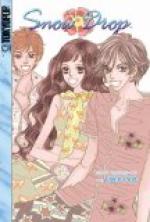That brother, who with him has played
Beside the brook, or in the shade
Where feathered warblers
sang,
And sported by the river side,
Or o’er the ice taught him
to glide,
While merry laughter
rang—
His love increased with growing
years,
One were their hopes, their joys,
their fears,
Their Savior, too, was
one.
That brother’s grief must
be severe,
Yet from his lips we hope to hear,
“My Father’s
will be done.”
Like ivy, round some youthful pine,
Did Julia’s warm affections
twine
Round his fraternal
heart;
Through adverse scenes they struggled
long,
Which rendered nature’s ties
more strong,
But they, alas! must
part.
Should fell disease assail her now,
Place his pale signet on her brow,
And chill her heart
with fear;
No more he’d stand beside
her bed,—
Bathe her parched lips, and aching
head,
And strive her mind
to cheer.
She’ll range the paths where
they have strayed,
And wander through the silent shade,
And ask, “is brother
here?”
She’ll view the grave, and
that will say
There’s naught within but
mould’ring clay,
No more will he appear.
That sister, who hath sought a friend
To share her grief till time shall
end,
Must still in tears
be drowned;
Although a partner soothes her grief,
And kindly strives to give relief,
And children cluster
round;—
She sees their glossy ringlets flow,
In clusters o’er each little
brow;
They speak of days gone
by,
When she with brother often strayed,
O’er hill and dale and flow’ry
glade,
Where golden sunbeams
lie.
A fair young friend, whose aching
heart
Now feels affliction’s keenest
dart,
Must long in sadness
weep;
Her brightest hopes are fled away,
Alas! her sweetest joys decay,
They in the grave must
sleep.
Her heart still bleeds at every
pore,
That much loved form she’ll
see no more,
Till Gabriel’s
trump shall sound;
We trust they’ll then in raptures
rise,
To that blight world above the skies,
Where tears no more
are found.
His aged parents feel the blow;
Long since they gazed upon his brow,
And blessed their infant
boy;
Trembling with age, we hear them
say,
“This dear support is torn
away,
What now can yield us
joy?
“Long years we watched our
lovely plant,
With care supplied its every want,
And hoped it long might
bloom;
But fierce disease has laid it low,
Reckless of tears that ’round
it flow.
And laid it in the tomb.
“Long, long we nursed his
fading form,
And strove to shun the gath’ring
storm,
Which threaten’d
in the sky;
Yet from our bleeding bosoms torn,
Our darling son leaves us to mourn;
Who can his place supply?”




